- Home
- Johnny D. Boggs
Whiskey Kills Page 3
Whiskey Kills Read online
Page 3
A blessing, perhaps. His father had died fighting for freedom. Many of The People who would return from dark, damp Fort Marion three years later came with the lung sickness, which left them gasping for breath or coughing up blood. Eventually this sickness, which the Pale Eyes called consumption, would send many warriors to The Land Beyond The Sun. Isa Nanaka would be one of those, although, tough as he was, he lived longer than most. Long enough to see Daniel return from his exile in Pennsylvania.
Carlisle, Pennsylvania.
One Kwahadi boy, just as frightened as the other Indians—one hundred and thirty-six in all—Lakotas, mostly, with Cheyennes, Arapahoes, Kiowas, and a few Pawnees, enemies of The People, enemies of just about every tribe on the plains. A bluecoat soldier oversaw the school. A tall man. A good man, really, though Daniel knew he, like most of his kind, was misguided. Daniel had been forced to point to white letters scratched onto a blackboard. After he had made his choice, School Father Pratt told him that he had a new name, Daniel. He must never refer to himself as His Arrows Fly Straight Into The Hearts Of His Enemies. He was Daniel. A good name. A strong name. An Old Testament name. A fine choice.
Later, one of the Pale Eyes women said Killstraight was not a Christian surname, that it conjured images of depredations, of rapine, of the barbarous nature of these savage fiends. His name should become Daniel Strait. “A noble Anglo-Saxon name,” she said. “I knew many Straits in Hertshire.”
School Father Pratt had smiled, and said: “Perhaps, but having taught this lad for these past few years, I think Killstraight fits him like a glove. Leave it Killstraight, Missus Hall. Daniel has earned that much, I warrant.”
Earned it? Yes.
At Carlisle, they had shorn his hair like he was some Navajo sheep, cutting off his long braids, and the men of The People cherished their hair. They had whipped him whenever he spoke his true tongue, made him pray to the Pale Eyes’ god, made him forget, or tried to make him forget, who he was, who his people were.
“Kill the Indian,” School Father Pratt had often said, “not the man.”
They taught him the English tongue, taught him how to be a carpenter—the Indian boys had to help repair, even build some of the buildings they would use to learn the ways of the Pale Eyes. After four years in Carlisle, they sent him to work for some hard-rock farmer in Franklin County, and, later, he spent an eternity hidden from the sun in those damp coal mines.
After seven years, they let him come home. Back to the reservation. Home.
Or was it home? Had he ever had a home?
That had troubled him for the first year back on the reservation. He remembered his mother, long dead, a Mescalero Apache woman who sang so lovely. He remembered that, as a boy, some of his friends would tease him, telling him that he did not truly belong to The People, and that he was only half a boy, the other half Apache.
After seven years traveling the white man’s road, he found himself a stranger among The People, wondering who he was, where he was going, what he should do.
So he had taken a job—something School Father Pratt and his fellow educators had chiseled into their students. Find employment. Work hard. It is good for your soul, will build your self-esteem, will help you better yourselves. Work. It is the way of the white men. Show enterprise. Improve your standing. Buy things. Own things. Follow the white man’s road. It is the only way to better yourselves, to improve your position, to survive in this world.
Ben Buffalo Bone, his friend, had introduced Daniel to the agent Ephraim Rueben, had bragged that Daniel would make a fine Metal Shirt. Ben Buffalo Bone was of the Kotsoteka band. As children, they had attended the missionary school together, but Ben had not been snatched away and spirited to Pennsylvania.
So Daniel had become a Metal Shirt, drawing $8 a month, which he seldom saw, getting a badge, a revolver, and an itchy, moth-eaten blouse.
Ben Buffalo Bone had brought Daniel to his lodge, given Daniel the cabin that the Pale Eyes had built for Ben’s father. The old peace chief never found much use for the cabin, hated the damned thing, really, not understanding how Pale Eyes could live in a dark structure of squares when a teepee represented the circle of life, the way of The People. The old man had lived in his teepee, and let his horses stay in the cabin. After Ben’s father had died, his uncle took Ben’s mother as his wife, but kept the cabin as a stable.
Daniel didn’t mind the cabin. Didn’t mind the horses who shared his home. He enjoyed the scent of horsehair, even horse apples. If only School Father Pratt had let us share our quarters with horses, he thought. But that would not be following the white man’s road.
In his first year as a Comanche Tribal Policeman, Daniel had slowly found his way. Perhaps his seven years living among the Pale Eyes had helped him send the crooked agent Ephraim Rueben to prison, and a few others, including another Comanche Metal Shirt. After that, the new agent had promoted Daniel to the rank of sergeant, not so much because of Daniel’s prowess as a lawman or detective. No, Daniel knew he had stumbled his way through that investigation, and the Police Gazette probably wouldn’t have labeled all those missteps, guesses, and bumbles as investigation.
There had also been a girl involved. She was in prison somewhere. A girl who worked at the mission. A Pale Eyes girl. A girl he had grown to like. Daniel didn’t like to think about her.
Instead, he thought of Rain Shower, Ben Buffalo Bone’s sister.
Tried to, at least. His thoughts kept leaving the lovely Rain Shower, his past, always coming back to Uvalde Ted Smith and Blake Browne. Always pointing to Toyarocho, and four-year-old Sehebi.
“Best way to know if the Creeks are running whiskey on the reservation is if you have a bunch of drunk Metal Shirts.”
Hugh Gunter had told him that, a long time ago, and it often proved true. Gunter was a tall, forceful Cherokee, an officer of the United States Indian Police with jurisdiction over the Five Civilized Tribes. Gunter had become a good friend, a mentor, along with another tall peace officer, a Pale Eyes gent with a weather-beaten face, furrowed brow, and whopper of a mustache, a man named Harvey P. Noble, a deputy United States marshal riding for Judge Isaac Parker’s court in Fort Smith, Arkansas.
Both men had taught Daniel a lot about being a lawman, being a detective, although Daniel still didn’t think of himself as either.
Best way to know if the Creeks are running whiskey . . .
During that first year as a policeman, he had learned a lot about Creek whiskey runners.
Yet it wasn’t just the Creeks. Choctaws had been arrested, and federal marshals had sent scores of Pale Eyes—from Kansas, Arkansas, and Texas—to prison for selling intoxicating spirits on the reservation. Every one of them was a bigger scavenger than a raven. They’d use anything they could find to keep their whiskey in: bottles, jugs, buckets, coal-oil cans, clay jugs, oaken kegs, usually a hodge-podge of containers, and, sure, maybe, a pint-sized beer bottle made of ceramic stoneware.
Yet every bottle in the back of Blake Browne’s wagon had been the same. Cases of the stuff, all stamped:
Coursey & Cox Bottling Works
Home Brewed
GINGER BEER
Dallas, Texas
So what? Daniel thought. It was over now. He didn’t know what was bothering him. Uvalde had been running so fast, he most likely had reached Dallas by now. Blake Browne had taken a vicious beating. Daniel had taught them a lesson. They wouldn’t be back in Comanche country again. They wouldn’t be selling whiskey to Toyarocho. They wouldn’t be responsible for another four-year-old girl’s death. They wouldn’t leave The People in mourning again.
It was over.
Yet something kept eating at Daniel’s stomach. Festering away. He had no regrets over what he had done to Blake Browne.
He heard Blake Browne’s voice: You’s here for Dakota.
That’s what the old man had said. What else?
Dakota paid you.
Who was Dakota? What had Browne meant? What did it mean? Anything?
Tell Dakota to go to hell.
What else? He tried to hear the old whiskey runner’s voice.
Blake Browne’s got a claim on this territory.
And: I made that one deal with your boss, but . . . never again.
There was something else.
I ain’t interested in partnerin’ with your crooked boss.
Important? He wasn’t sure, but it kept bothering him. He tried to forget it, tried to convince himself the job was finished, that Blake Browne was finished. Yet it gnawed at him as he tried to sleep, and then he opened his eyes, seeing the marsh hawk, perched before him, singing his song.
Dakota. Dakota. Dakota.
Chapter Four
He heard her voice, softly calling his name.
Daniel tossed off the blanket, and sat up, rubbing the sleep out of his eyes while recognizing the pungent aroma of his home. A horse snorted. After he found his hat, he pulled himself to his feet, and detected another scent before he saw her.
With a gentle, perhaps even bashful smile, Rain Shower held out the tin cup.
“Ura,” Daniel thanked her as he took the steaming cup. She said nothing as Daniel took the first sip of coffee. Sweeter than usual, almost like candy. Ah, Daniel remembered, ration day had come while he had been chasing those two whiskey runners. Using sugar at this rate, Rain Shower and her family would be out long before the next rations were handed out, but that was fine.
“I did not hear you return home,” she said in Comanche.
“It was late,” he answered, and the silence returned.
The bay stallion, which had been the pride of Ben Buffalo Bone’s father, began spraying the floor with urine, so Daniel suggested they step aside. With a quick nod, Rain Shower led the way.
Despite the morning’s chill, the sun began to warm Daniel. The snow, what little had stuck to the earth, had already melted. He saw his buckskin in the round corral, smelled the wood smoke, and watched Ben Buffalo Bone’s mother sitting under the brush arbor, cooking breakfast.
“You still look tired,” Rain Shower said.
“I feel tired,” he answered. Daniel noticed the badge on his blouse. He had slept in his clothes. He must have been exhausted, couldn’t remember even putting his horse in the corral. Couldn’t remember hardly anything. He lifted the cup, stopped.
Now he remembered.
Beating the hell out of the whiskey runner. Burning the whiskey wagon.
A frown hardened his face.
Said Rain Shower: “I should have let you sleep.”
“Kee.” He shook his head. “I must work. Report to the agent.”
“Did you find the men you sought?”
He stared at her, thinking: Your brother has a big mouth.
Mr. Leviticus Ellenbogen must have told Ben Buffalo Bone where Daniel had gone, and Ben, as was his nature, had told his sister. Probably anyone else he had seen. Daniel sipped his coffee, but it had a bitter taste now.
“Were those men Creek?” she asked.
“Taibo,” he replied, barely audible.
“Did you . . . ?” she asked, her voice much sterner now.
What else did Ben tell you? he thought, only to correct himself. No, it isn’t Ben Buffalo Bone. She sees it in my face.
He noticed her face, too.
Round and lovely, even with her full lips lined in a scowl. Her black hair, parted in the middle, shone in the morning sun, and fell past her shoulders. She wore a dress of gray wool—Daniel pictured her picking up the bolt of cloth at ration day last autumn—that she had decorated with beads and shells. A bone necklace adorned with crosses of German silver hung from her neck. Ben Buffalo Bone’s oldest sister was probably two or three years younger than Daniel, but she looked older this morning. Daniel glanced at her hands, worn, dried from the sun and wind, and he remembered one of the school mothers back at Carlisle, how she always lamented how her hands made her look ten years older, no matter how much cream she rubbed on. Rain Shower didn’t have the liver spots like Mrs. Thornton, but her hands looked twenty years older than her face.
Life had always been hard on the women of The People. Women had few rights. They were property from the time of their birth, belonging to their fathers, and, once they married, they were owned by their husbands. When they became old, they had no place of honor or respect. They were ignored, cast aside, the same as any old Nermernuh man. Some tribes took care of the elders, but not The People. They let them die. “Do not grow old,” a fellow Metal Shirt named Twice Bent Nose constantly advised Daniel.
“Those men will not bring whiskey to the land of The People again,” Daniel said. Her face registered no emotion. “I burned their wagon, and the whiskey they had not sold.” She didn’t even blink. “No, I did not kill them. I could not kill them,” he said, and his head dropped.
That was a lie. He could easily have killed Blake Browne had he not summoned enough strength to control his temper after it had been unleashed. He had killed a white man before, maybe not directly, but he certainly had caused that thief and killer’s violent death, and he didn’t regret it, didn’t lose any sleep over it, rarely even thought about it. When Daniel raised his eyes, he saw Rain Shower smile softly, with relief. She no longer looked older than her years.
“I am glad,” she said.
“I am, too,” he said, which, he found surprising, was true. He wondered if Teepee That Stands Alone would be pleased. No, that was unlikely. Teepee That Stands Alone would have truly avenged the death of his granddaughter, the corruption of his son. He would have burned the wagon of whiskey, true, but only after he had tied Blake Browne and Uvalde Ted Smith to the wheels, and roasted them alive.
“My brother!” Ben Buffalo Bone shouted, and slapped Daniel’s back, dumping the rest of Daniel’s coffee onto the ground, and prompting a giggle from the girl. “When did you return home?”
“Last night,” Daniel said. “Very late.”
“Tsaa!” He took the tin cup from Daniel’s hand and pitched it to his sister. “Agent Elbow wants to see you. This he told me, has been telling me for days. I do not know how many days. But he has said that as soon as you return, you must see him. Let us ride, my brother. It is good that you are home. I was afraid you would miss the celebration.”
“What celebration?” Daniel asked.
“In three suns, my sister becomes a woman.”
Daniel shot a quick look at Rain Shower, and Ben Buffalo Bone’s hammer-like strike bruised his shoulder blade again.
“Not her. We celebrate the passage of Oajuicauojué!”
Nodding, Daniel understood. Oajuicauojué was Rain Shower’s younger sister. She had reached puberty. The rite would be anything but fancy, but the feast afterward would be enormous.
“You will be there?” Rain Shower asked.
“I would be honored,” he said.
“Come, brother!” Ben Buffalo Bone yelled again. “I must take you to see Agent Elbow.”
* * * * *
He spent the next few days at Huupi, in the southwestern corner of the reservation, trying to negotiate a treaty between two old men, one of the Yamparika band, and the other a Penateka.
Long ago, the Yamparika had been the northernmost band of The People, rarely, if ever, venturing farther south than the Canadian River. Indeed, old Isa Nanaka had once told Daniel that the Yamparika had been the last of The People to leave the great mountains of the northwest, where The People had once lived with their brothers the Shoshones.
So, it was natural that the Yamparika thought they were superior to any other band, and, in Huupi, a Penateka had taken the brunt of a Yap Eater’s wrath. Try as he might, Daniel could never really figure out what the disagreement was all about, and, when he tried asking the Penateka, it was Daniel who took a blow to the back of his head, delivered by the old Yap Eater’s walking stick.
“Do not believe Freckles!” the Yamparika said.
“I am as Comanche as you!” the Penateka snapped back after the insult.
/> The Yamparika laughed. “You,” he said to the silver-haired Penateka. “You are not truly of The People. Your clan has copulated with so many taibos, and Saretika, even Nashonit and Dokana. You would even wed a Tonkawa if you were not afraid they would eat you.” He spit on the ground.
“At least I do not marry my sister,” the Penateka said. “Or my mother.”
Daniel stepped aside, and watched the fight.
He was glad to see the Penateka win, although both men were gasping and bleeding, and too tired to carry on any further. The Yamparika had angered Daniel, for he could remember hearing similar insults during his childhood, listening to boys his age, or even older men, accuse him of not being Kwahadi because his mother was a Mescalero Apache.
With the help of the old men’s wives, Daniel got them underneath a brush arbor, and let the old women bathe their cuts, wipe the mud off their faces, and the dirt out of their hair, before he spoke to the two old men.
“I have more important things to do than watch old fools beat themselves bloody.” Daniel tapped his badge. “This makes me a chief.” He showed the sergeant’s chevrons Rain Shower had sewn onto his blouse. “And this . . . this gives me great puha. Power to take you before Quanah Parker. Our chief is not as merciful as I am. If I have to come back here, old men, I will bring you back to Quanah, and he will send you to the dark place. The damp place. The stone prison either at the soldier fort or, maybe, in the jail of the Tejanos.”
When he had given the words time to sink inside two incredibly thick skulls, Daniel knelt beside the Yamparika. “Do you understand my words, Coyote Chaser?”
The old man flinched when his wife dragged a coarse rag over a large scrape on his cheek. “Yes,” he snapped.
Daniel turned to the Penateka. “Do you hear what I have spoken, Seven Beavers?”
“There will be no trouble,” the old man managed.
“Good.”
Daniel spoke briefly to Coyote Chaser’s wife, then mounted his buckskin, and rode north. He kept the horse in a good lope, wanting to reach home in a hurry, not daring to miss the puberty ceremony of Rain Shower’s sister. Likely the agent would demand a report. Ellenbogen had Daniel spending more time writing papers than riding, but at least he didn’t force Daniel to rake the grounds, hoe his garden, burn trash, and handle other jobs meant for women, the way the previous agent had worked most of his policemen. Besides, Ellenbogen, who had been so anxious to see Daniel after his encounter with the whiskey runners, had not wanted to hear much about what had happened in Greer County. Actually Daniel had not even mentioned that he had left the reservation.

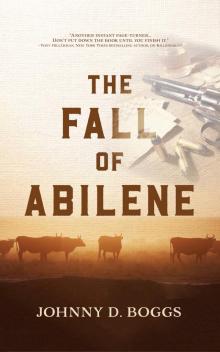 The Fall of Abilene
The Fall of Abilene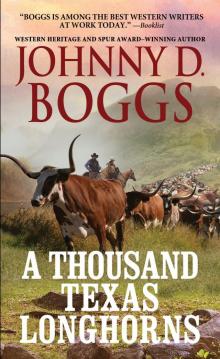 A Thousand Texas Longhorns
A Thousand Texas Longhorns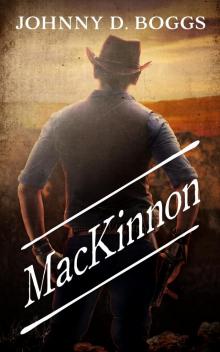 MacKinnon
MacKinnon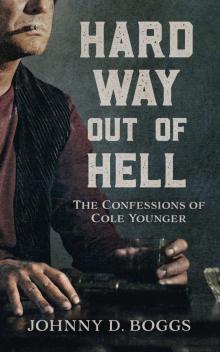 Hard Way Out of Hell
Hard Way Out of Hell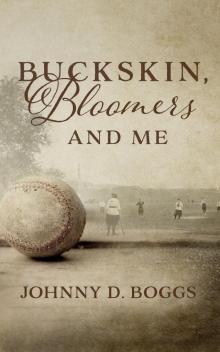 Buckskin, Bloomers, and Me
Buckskin, Bloomers, and Me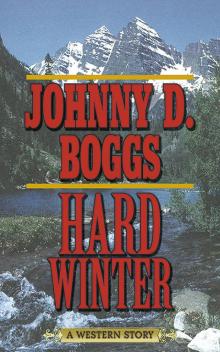 Hard Winter
Hard Winter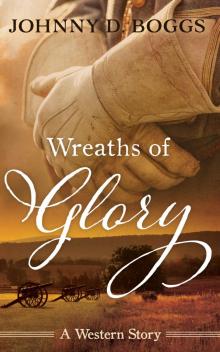 Wreaths of Glory
Wreaths of Glory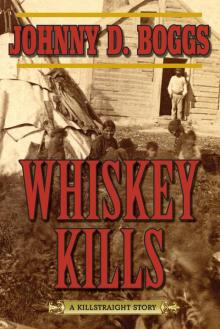 Whiskey Kills
Whiskey Kills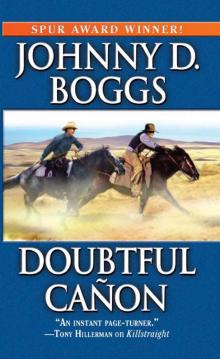 Doubtful Canon
Doubtful Canon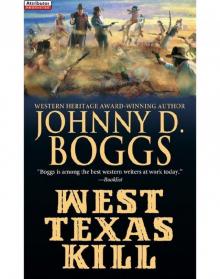 West Texas Kill
West Texas Kill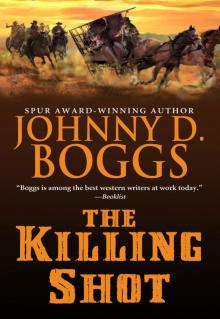 The Killing Shot
The Killing Shot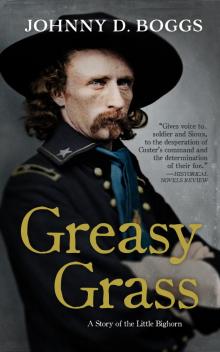 Greasy Grass
Greasy Grass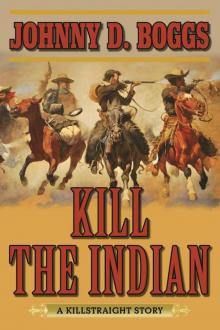 Kill the Indian
Kill the Indian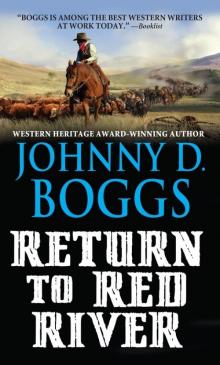 Return to Red River
Return to Red River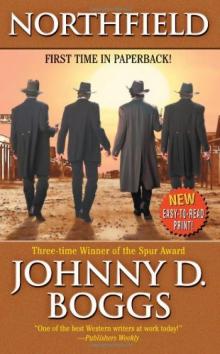 Northfield
Northfield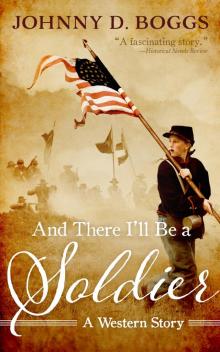 And There I’ll Be a Soldier
And There I’ll Be a Soldier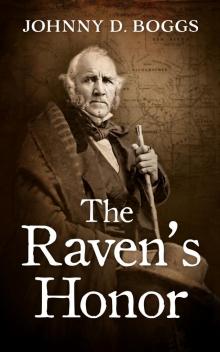 The Raven's Honor
The Raven's Honor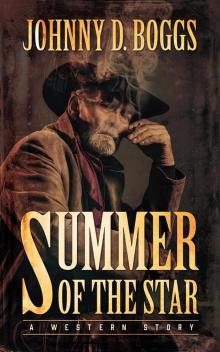 Summer of the Star
Summer of the Star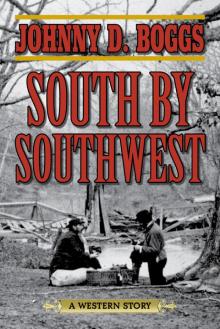 South by Southwest
South by Southwest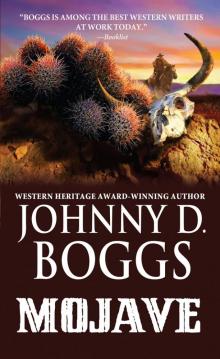 Mojave
Mojave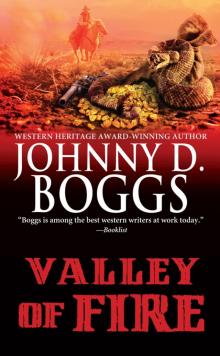 Valley of Fire
Valley of Fire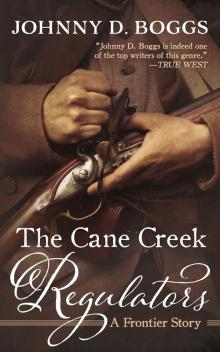 The Cane Creek Regulators
The Cane Creek Regulators